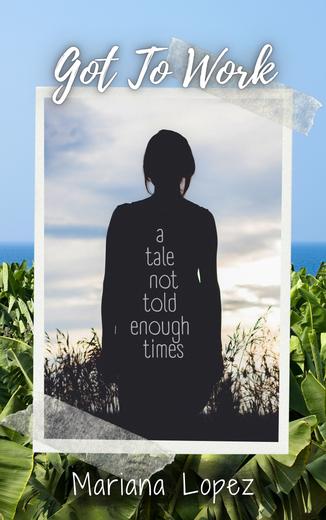
Age:
High School
Reading Level: 1.6
Chapter One
They all got up and washed their faces. They changed their shirts to the dusty, torn ones for work.
They left the tent. They followed the other workers from the other tents.
They sat at a large table. Those who didn’t fit sat on the floor. A ration of bread was handed to them.
The bell sounded. They left the table. They walked down to the fields.
“Got to work.”
No, it was not a prison. No, it was not a detention center. And no, it was not torture. It was just a workplace. Tough work, but it gave them food and a place to sleep.
Some had no family, which was why they lived there.
The fields were hot. The plants kept in the heat and made it hard to breathe.
“Got to work.”
Chapter Two
The United Fruit Company. That was the name.
They did not know how to read or write. They only knew that name. It was in their heads all day.
A large company. They knew it was not from their country, because the name was foreign. But they were in it.
That was all they needed.
Today was the eleventh of November. Many did not know that.
They worked all day collecting fruit. It was all they knew how to do. They collected fruit. They knew when to plant, when to harvest, and when to pack the boxes with the fruit. They toiled away all day.
The day went by, with stops for lunch and sometimes a water break.
They worked, and their skins got a little darker. Their throats got a little drier. Their feet got a little more calloused. Their backs got a little more crooked.
“Got to work.”
At nighttime, they received some beans and potatoes and went to their tents. They changed their shirts to the night ones. They got into bed.
Rinse and repeat.
“Got to work.”
Chapter Three
The twelfth of November began.
They got up from their beds, had their breakfast, and went straight to the fields.
“Got to work.”
Maybe that day the sun was a little hotter. Or the bread was a little staler. Or the fields were a little fuller. But that was it. No more.
No more heat. No more burnt skin. No more dry throats. No more calloused feet. No more crooked backs.
They decided: no more.
“Don’t want to work.”
Days went by. Days when they did not work.
They did not suffer from heat or thirst. They did not work.
They were sick of working. It was like the same, horrible bug had bitten them all, giving them the deep urge to stop working.
“Don’t have to work.”
Days turned to weeks. December came around. And they sat. They just sat there and waited.
They waited for the bosses, the big men, to come. They waited for them to come talk.
To talk about doing better. About having more and getting more. About suffering less heat and having more bread. About working less and having a clean shirt.
But the big men did not come. The fruit stayed there in the trees. The boxes for shipping stayed empty. And they waited, but the big men did not come.
“Don’t have to work.”